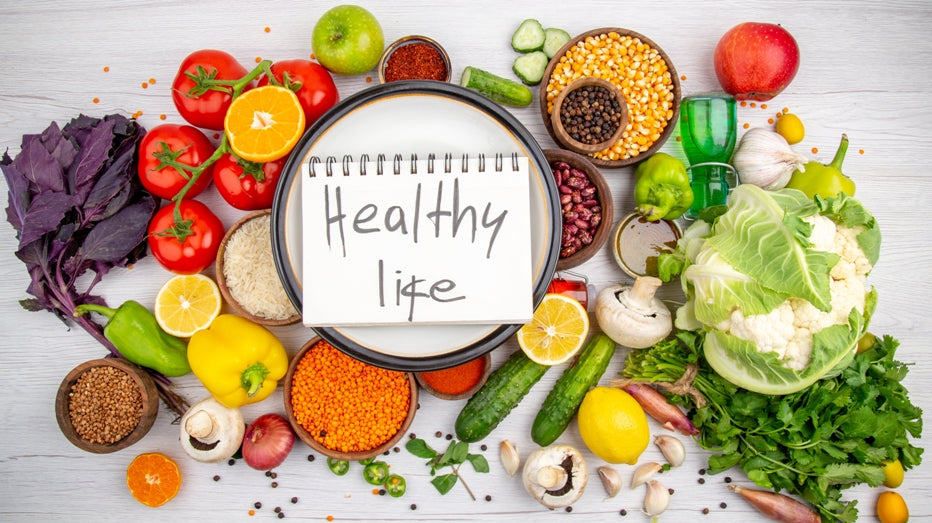Introduction
In today’s fast-paced world, maintaining a balanced diet can often be overlooked in favor of convenience and quick fixes. However, understanding the fundamentals of a balanced diet is crucial for overall health, vitality, and disease prevention. This post delves into what constitutes a balanced diet, its benefits, and practical tips for incorporating healthy eating habits into your daily life.
businessObligation | mybusinessspots | ecobizlink | biztrepid | appyntax
What is a Balanced Diet?
A balanced diet provides all the essential nutrients, vitamins, and minerals that your body needs to function correctly. It should include a variety of foods in the right proportions and enough calories to maintain your energy needs. The key components of a balanced diet include:
- Carbohydrates: The primary source of energy. Opt for complex carbohydrates like whole grains, fruits, and vegetables over refined sugars and white bread.
- Proteins: Essential for growth, repair, and maintenance of body tissues. Include lean meats, fish, eggs, beans, and legumes.
- Fats: Necessary for absorbing vitamins and providing energy. Focus on healthy fats from nuts, seeds, avocados, and olive oil.
- Vitamins and Minerals: Critical for various bodily functions, these should come from a diverse range of fruits, vegetables, nuts, and seeds.
- Fiber: Important for digestive health. Found in whole grains, fruits, vegetables, and legumes.
- Water: Essential for hydration, digestion, and nutrient transportation. Aim for at least 8 glasses a day.
Benefits of a Balanced Diet
- Weight Management
A balanced diet helps in maintaining a healthy weight by providing the right amount of nutrients and energy. Consuming a variety of foods can prevent overeating and reduce the likelihood of obesity.
- Improved Immune Function
Nutrients such as vitamins A, C, E, and minerals like zinc and selenium strengthen the immune system, making the body more resilient to infections and illnesses.
- Enhanced Mental Health
Certain nutrients, like omega-3 fatty acids found in fish, are known to improve brain function and reduce the risk of mental health disorders such as depression and anxiety.
- Disease Prevention
A diet rich in fruits, vegetables, whole grains, and lean proteins can reduce the risk of chronic diseases like heart disease, diabetes, and cancer. Antioxidants in these foods combat oxidative stress and inflammation.
- Increased Energy Levels
A well-balanced diet ensures a steady supply of energy throughout the day, preventing fatigue and improving overall productivity and mood.
Key Components of a Balanced Diet
- Fruits and Vegetables
These should make up about half of your plate. They are rich in vitamins, minerals, and fiber but low in calories. Aim for a colorful variety to ensure a range of nutrients.
- Whole Grains
Choose whole grains over refined grains. Whole grains like brown rice, quinoa, and oats are packed with fiber, B vitamins, and essential minerals.
- Protein Sources
Incorporate both animal and plant-based proteins. Lean meats, fish, eggs, beans, lentils, and nuts are excellent sources. Try to include fish in your diet at least twice a week.
- Dairy
Dairy products are a key source of calcium and vitamin D. Opt for low-fat or fat-free options to reduce saturated fat intake. If you’re lactose intolerant, fortified plant-based milks are good alternatives.
- Healthy Fats
Focus on unsaturated fats from sources like olive oil, nuts, seeds, and avocados. Limit saturated fats found in red meat and full-fat dairy, and avoid trans fats commonly found in processed foods.
- Hydration
Water is vital for almost every bodily function. Besides drinking water, consume water-rich foods like cucumbers, oranges, and watermelons to stay hydrated.
Practical Tips for a Balanced Diet
- Plan Your Meals
Planning meals ahead can help ensure you include a variety of foods and avoid unhealthy choices. Preparing a weekly menu can save time and reduce the temptation of fast food.
- Portion Control
Understanding portion sizes can prevent overeating. Use smaller plates, eat slowly, and listen to your body’s hunger cues.
- Read Food Labels
Pay attention to nutritional information on food packaging. This can help you make healthier choices and avoid foods high in sugar, salt, and unhealthy fats.
- Cook at Home
Home-cooked meals are usually healthier because you can control the ingredients. Experiment with different recipes to make your meals interesting and nutritious.
- Limit Processed Foods
Processed foods often contain high levels of sugar, salt, and unhealthy fats. Opt for whole foods whenever possible.
- Snack Smartly
Choose healthy snacks like fruits, nuts, yogurt, or vegetable sticks over chips or sweets. This can help maintain energy levels and prevent overeating during meals.
guestbloom | prkesslymedia | ehexsfx | primecarfix | smoothbizflow
- Stay Consistent
Consistency is key to a healthy diet. Make small, sustainable changes rather than drastic alterations. Over time, these small changes can lead to significant health improvements.
Conclusion
A balanced diet is the cornerstone of good health and well-being. By understanding the components and benefits of a balanced diet and incorporating practical tips into your daily routine, you can improve your overall health, boost your energy levels, and reduce the risk of chronic diseases. Remember, it’s not about perfection but about making better choices more often. Start today, and make a commitment to nourish your body with the food it deserves.

